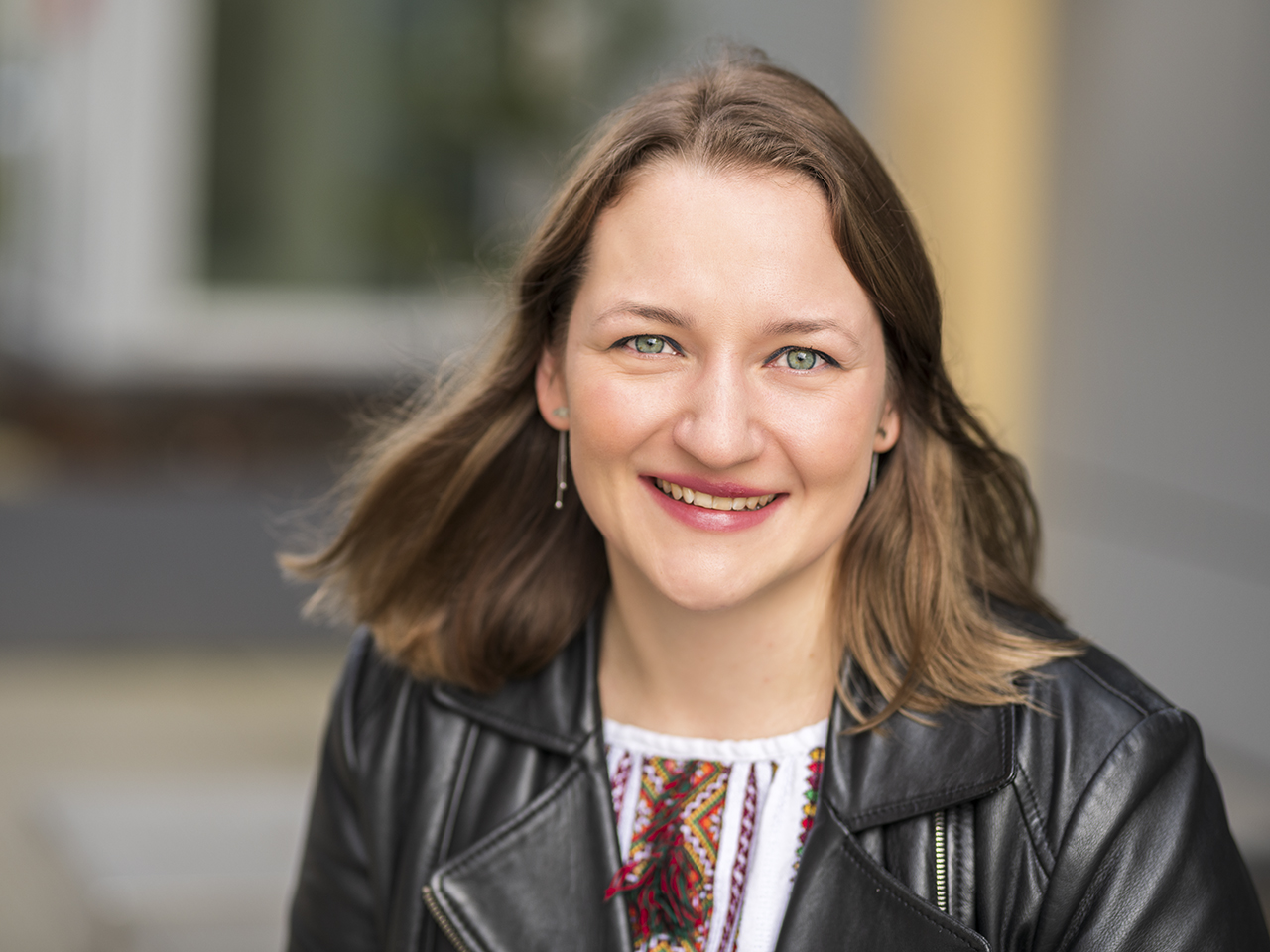When Russia invaded Ukraine in 2022, everything changed for Natalia Dychko. As a child in Kyiv, she had never imagined that her country, Ukraine, would not always be independent.
Born in Kyiv in 1991, Dychko grew up speaking Ukrainian at home and Russian on the playground. The family lived on the first floor and she fondly remembers neighborhood kids knocking on her window asking her out to play in the nearby park.
Dychko’s father was a politician involved with the Ukrainian separation from the former Soviet Union in 1991.
Following the murder of his friend, journalist Georgy Gongadze, allegedly at the behest of then-president Leonid D. Kuchma, he was shot in the leg. The family moved to Cherkasy, a city about 200 kilometers (125 miles) from Kyiv, and her father got a new job as a manager at a wood furniture factory.
In November 2004, protesters and demonstrators launched the Orange Revolution after widespread domestic and international allegations of a rigged run-off election between Viktor Yushchenko and Viktor Yanukovych. The latter candidate, supported by Russian President Vladimir Putin, was declared the winner. However, reports of massive corruption, voter fraud, and voter intimidation meant that many Ukrainians viewed the election as illegitimate and Yanukovych as having been falsely declared president.
“After the election day, when we saw that the results were not true, my parents told me we were going to Kyiv,” Dychko remembers. “‘But tomorrow is school,’I said. ‘School doesn’t matter,’ they replied. ‘We have to go to the demonstration.’”
“That was the first time I realized a person can pay attention to what they care about,” she says.
Dychko’s parents encouraged her to participate in the protests, which lasted until January 2005, when Ukraine’s Supreme Court ordered a revote, which Yushchenko won handily, 52% to 44%.
Three years later, Dychko visited her aunt in Portland, Oregon, and attended English as a second language (ESL) classes at Portland Community College for six months.
Upon returning to Kyiv after six months in Portland, she studied marketing and then worked on a master’s degree in social work.
In 2010, Yanukovych was elected president. Then, in November 2013, despite overwhelming support by Ukraine’s parliament, Yanukovych refused to sign an agreement that would bring Ukraine into political and economic association with the European Union. This decision sparked the Euromaidan protests, a series of demonstrations in which over 100 protesters were killed. In February 2014, Yanukovych fled the country and the parliament voted to oust him from office and hold new elections. At this time, Russia invaded the Crimean Peninsula and illegally annexed the region.
“That was shocking for me,” Dychko says. “I never thought I would live in times where the war would be here and on my land. By that time, we knew that Russians hate us and would do anything to get those lands.”
Dychko participated in the war effort by preparing meals for the soldiers and volunteering in the election office for a pro-Ukrainian candidate. After returning to Cherkasy, she got a job and continued to work on her master’s in social work.
While attending the university, she met her husband. Their son was born in 2019 and, two years later, their daughter.
Near the end of 2021, people began talking about Russia invading Ukraine but Dychko could not believe it and thought that it could never happen in her lifetime. But on February 24, 2022, Russia invaded Ukraine and began the ongoing war between the two nations.
At the time, Dychko was living in Western Ukraine, close to the Romanian border but away from the fighting. By the end of the summer, as fighting seemed to begin to dwindle, Dychko, her husband, and their children returned to Kyiv.
In August 2022, Dychko and her husband separated, although he continues to help with the children.
On October 10, Russia launched a series of rocket strikes against Kyiv, ultimately leading to dozens of deaths and hundreds of casualties.
“I took my kids and we sat in our bathroom,” Dychko says. “They were 3-and-a-half and 1-and-a-half. We took some toys and some food with us in case we couldn’t get out of there. We lived on the 13th floor and the elevator was not working. It was kind of scary, but I wasn’t that scared.”
In November 2022, Dychko returned to Portland with her children to live with her aunt. She now works for a foundation helping other Ukrainian refugees. She hopes to one day return to Kyiv to raise her children, but she does not yet know if that will be possible.
“War focuses your attention on what is most important to you,” she says. “My kids are learning English and doing OK, and I am glad I can be helpful even though I cannot be in my own country right now.”

